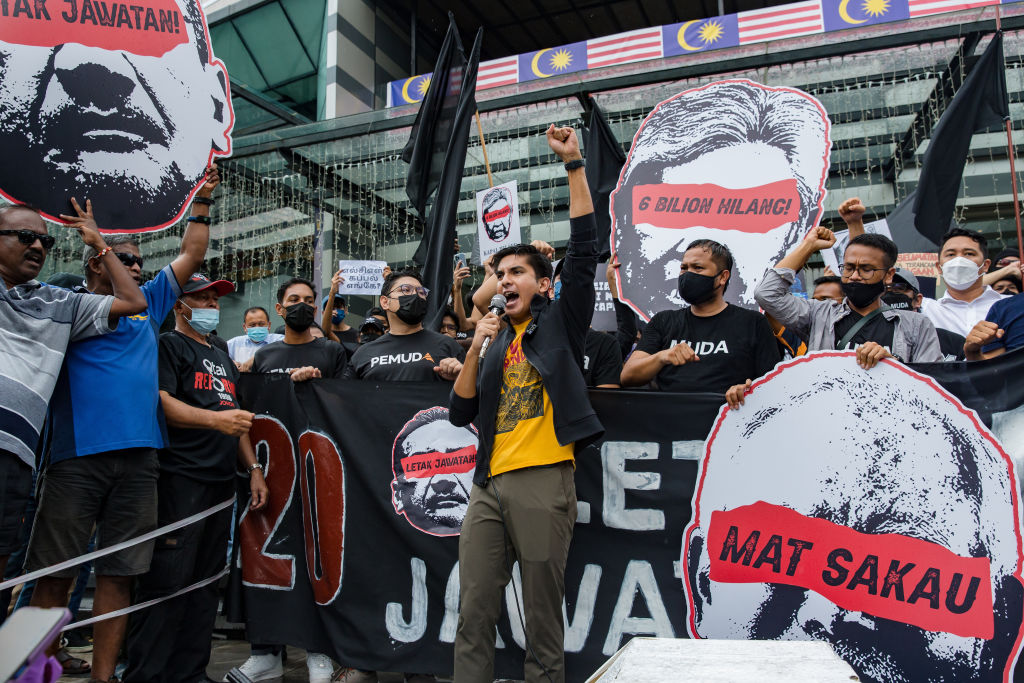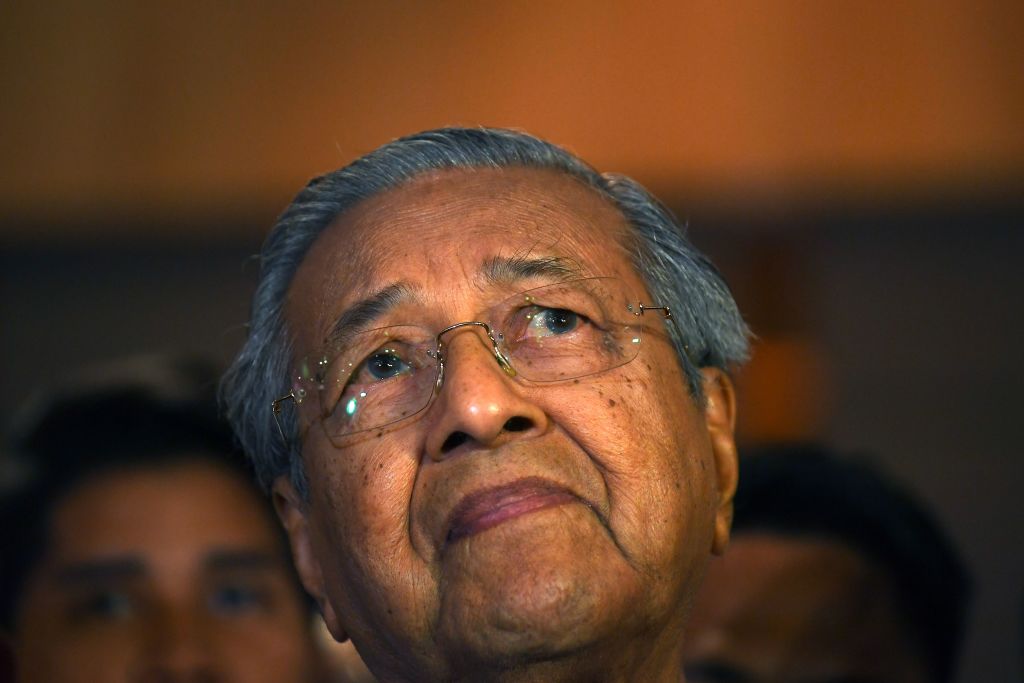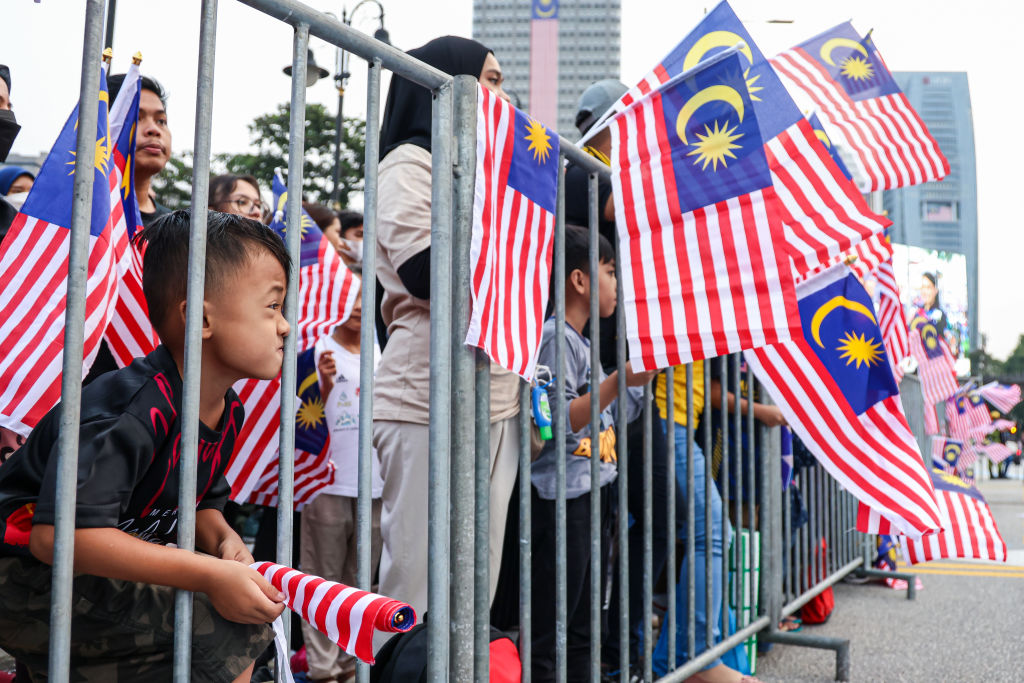
Malaysia’s upcoming general election on Nov. 19 will be the first in which people aged 18 to 20 can vote. The change follows constitutional amendments in 2019 and could have big political implications for a country that sits at the center of an increasingly important region geopolitically.
The Southeast Asian nation of 32 million people is a parliamentary democracy, but no single party has ever won an outright majority of the 222 seats in the lower house. Government has thus been by coalition, with the main contenders being two blocs cleaved along ethnic lines. One, led by the United Malay National Organization (UMNO), a Malay-centric party, has largely held power since the nation’s independence in 1957. The other, Pakatan Harapan, is a collection of multi-ethnic opposition parties.
Read More: The 2020 Election Was a Breakthrough Moment For Young Voters in America
The lowering of the voting age, along with automatic voter registration, has added an estimated 5.8 million eligible voters—swelling the Malaysian electorate by about 40%. This could be a “game changer” and a “wild card” in determining the winning coalition, some analysts say, especially given the emergence of new political factions and parties. The outstanding question is whether disenchantment with the political old guard—many of whom have been tainted by enormous corruption scandals—will motivate youth to swing the election or to stay home out of apathy.
A rising generation has proven to be a powerful electoral force across the world this year, whether at the polls in places like Australia or in absentia in places like Kenya. Campaigners in Malaysia, where the median age is just 30, hope the same will prove true for their country.
“Malaysian youth are effectively kingmakers,” Syed Saddiq Syed Abdul Rahman tells TIME.
A young lawmaker in the just-dissolved parliament, Syed Saddiq spent years working to get to this point. He was a key figure in the constitutional amendment process, and in 2020 he founded Malaysia’s United Democratic Alliance, commonly called Muda, which means “young” in Malay. As he approaches his 30th birthday in December, his movement to engage youth in the country’s politics is about to face the biggest test yet of its strength and potential.
Hailing from the ethnically-diverse southern state of Johor, Syed Saddiq was born the son of a school teacher and a Singaporean construction worker, boasting neither wealth nor connections. But as a student, he began to earn accolades and attention on the debating circuit.
In 2015, Syed Saddiq and about 20 other student leaders were invited to a dialogue with Malaysia’s former prime minister, Mahathir Mohamad, then CEO of the government-owned oil firm Petronas. At the time, international headlines were being made by the billion-dollar 1MDB corruption scandal, which involved the country’s sovereign wealth fund and allegations of money laundering. There were calls for sitting prime minister Najib Razak to resign. Like Mahathir, Najib was a member of UMNO.
Syed Saddiq remembers Mahathir calling for party reform during the dialogue. As a naturally inclined debater, Syed Saddiq countered with a radical suggestion: Why not “bring in a new government” and scrap UMNO altogether?
“I thought I was canceled immediately because he gave me this weird look,” Syed Saddiq tells TIME.
In Syed Saddiq’s retelling, Mahathir defended UMNO and said the party could still be “saved” from within. Yet after their exchange, Mahathir and his allies invited Syed Saddiq to attend meetings, and, in 2016, Mahathir broke with UMNO to form a new party that joined the opposition coalition.
Mahathir ran against Najib in 2018, the last general election, and Syed Saddiq ran for a seat in parliament. Both won, and Mahathir appointed Syed Saddiq to his cabinet, making Syed Saddiq, at 25, the youngest minister since Malaysia’s independence and Mahathir, at 92, the oldest known prime minister of any country.

Syed Saddiq struggled to be taken seriously by his older counterparts. Before winning the seat for the Muar federal constituency, a seasoned UMNO leader called Syed Saddiq a “kitten” who could not sway older voters. In session, some lawmakers derided him as cucu (grandson) and budak (kid).
But that didn’t stop him from accomplishing some of his key objectives. When Syed Saddiq was elected, Malaysia was still one of 10 countries in the world with a minimum voting age of 21 instead of 18. Veteran politicians argued that younger people were not mature enough to vote, despite the government deeming them old enough to own property, smoke tobacco, and be held criminally liable as an adult.
A year into his term as youth and sports minister, Syed Saddiq pushed to lower the voting age, writing to other parliamentarians to secure their backing. The constitutional amendment, packaged with other reforms including automatic voter registration, was eventually passed with unanimous support.
Syed Saddiq’s time as minister, though, was cut short. In 2020, Mahathir resigned after he and a coalition partner, reformist heavyweight Anwar Ibrahim, failed to agree on when the former would hand the premiership over to the latter. Mahathir and Syed Saddiq were sacked from the ruling party, and the coalition collapsed. But instead of joining his mentor in a newly-created opposition party, Syed Saddiq set out to forge his own path. In September 2020, he founded Muda with the intent to usher in an entirely “new brand of politics.”
While a key aim of Muda is to bring young blood to a parliament whose lower chamber most recently had an average age of 56, the sixth-oldest in the world, Syed Saddiq tells TIME that it’s not just about demographic change. He says he co-founded Muda to “turbocharge” Malaysia, which he claims is due for an overhaul through an infusion of “disruptors.”
Syed Saddiq said Muda was inspired by the En Marche! movement in France, which gave the European country its youngest ever president in Emmanuel Macron five years ago. En Marche! was data driven, relied on crowdfunding, and worked like a grassroots organization—and Muda has operated similarly. For a nascent group, Muda has lofty ambitions of dismantling decades-old, race-based politics and redistributing wealth with society’s most marginalized top of mind.
Read More: Why the World Is Turning to Younger Leaders to Drive Change
A major hurdle for the party is getting newly-enfranchised youth to actually turn out to vote. Years of being cast aside have left young people jaded. Though a majority of Malaysians aged 15 to 25 believe the country is on the wrong track, according to a poll conducted last year by research firm Merdeka Center, only 40% of that age group said they would be keen to vote in the upcoming general election.
Lacking traditional political machinery to reach out to some 21 million voters, Syed Saddiq and his team took to TikTok instead. Many of his videos either show him arguing his way through parliament or laymanizing national issues using a TikTok meme or dance craze. The 29-year-old lawmaker has become a social media superstar—in part due to his good looks. Two years after his first TikTok post, which featured him doing push-ups with his cat Toby, Syed Saddiq now boasts more than 10 million likes and 800,000 followers on the platform. That’s on top of the more than a million followers he has on each of Instagram and Twitter.
But efforts must go beyond social media activism, he believes. In a session on audio social platform Clubhouse last year, Syed Saddiq described how he believes members of Malaysia’s political old guard view youth: “They’ll say, ‘young people, they speak up in social media, but they don’t turn up to vote, so why should we care about them?’” He challenged his followers to “change that narrative.”

Muda won in its first state elections last March without teaming up with the political establishment. However, Shamsul Amri Baharuddin, a leading social anthropologist at the National University of Malaysia, tells TIME that the party is “still not strong,” with its appeal limited to mainly urban voters. He adds that the lowering of Malaysia’s voting age does not guarantee support for Syed Saddiq, Muda or any young candidate, in the next elections. Geographic, socio-economic, and ethnic divisions still play a large role, he notes, and “young voters do not belong to a homogenous group.”
“We understand that the journey will be long,” Syed Saddiq acknowledges. He points out that Muda’s entry into the electoral competition has already pushed other parties to field younger candidates, which he is heartened by.
Nurul Rifayah binti Muhammad Iqbal, a 19-year-old in Selangor who recently stepped down from being an executive committee member of Muda, tells TIME that the ultimate success of the movement to engage young voters will not be measured by how many seats Muda wins in parliament but by whether or not those in power from all parties are persuaded to start taking youth and their needs more seriously going forward.
Muda hopes to contest at most 15 seats in November. “At the end of the day, it’s not the party who’s going to take care of my constituency—it’s the candidate itself,” Nurul Rifayah says, advocating that Malaysia’s youth take their voting power seriously and thoughtfully consider who will best represent their interests.
Syed Saddiq, who plans to run for a seat in parliament again, says: “It is my duty to empower not just young leaders, but young people at large to know that this country belongs to them—that we will be inheriting this country and it’s better that we act today before it is too late.”
More Must-Reads from TIME
- Cybersecurity Experts Are Sounding the Alarm on DOGE
- Meet the 2025 Women of the Year
- The Harsh Truth About Disability Inclusion
- Why Do More Young Adults Have Cancer?
- Colman Domingo Leads With Radical Love
- How to Get Better at Doing Things Alone
- Michelle Zauner Stares Down the Darkness
Contact us at letters@time.com